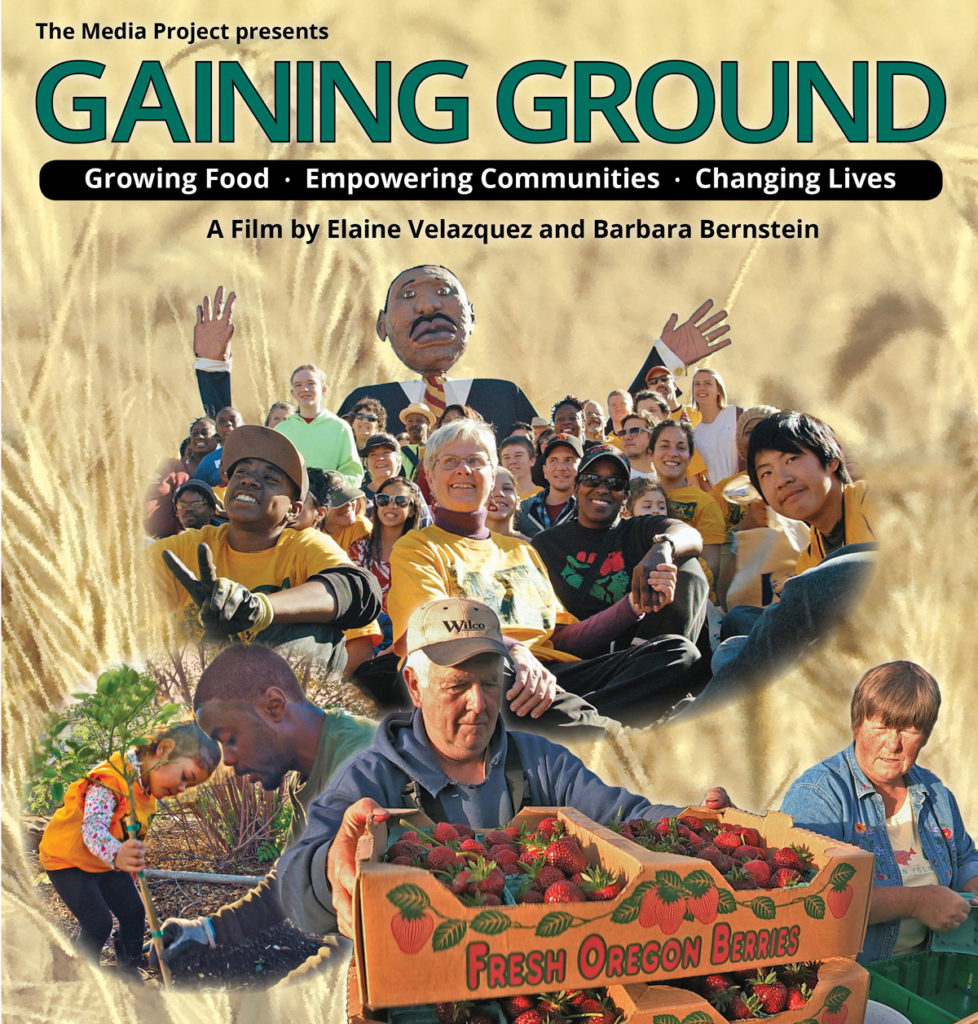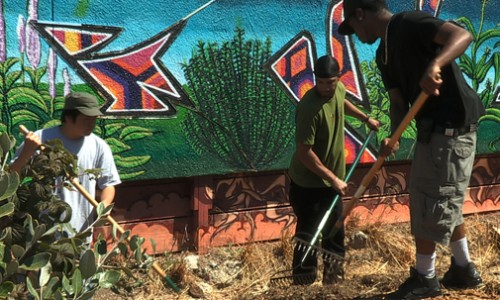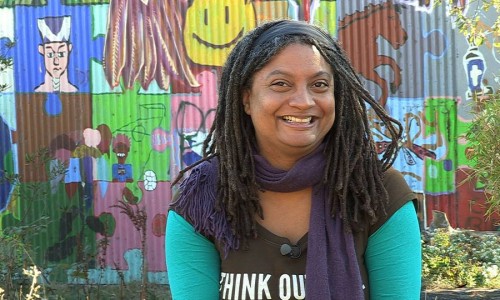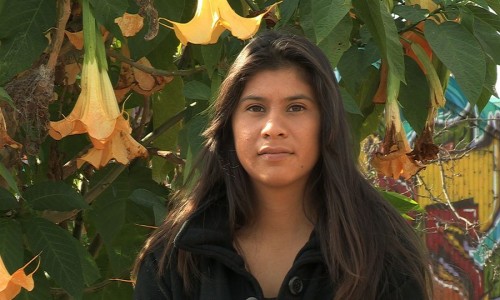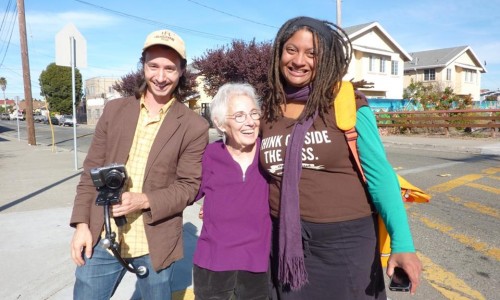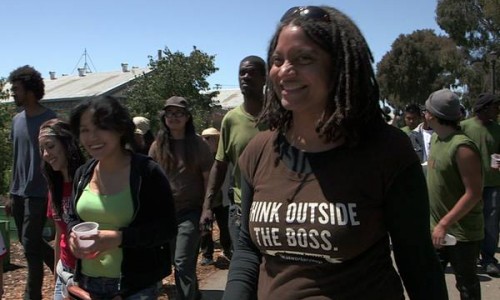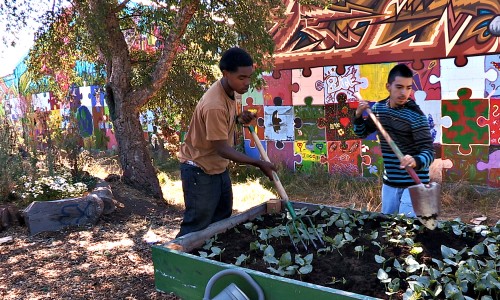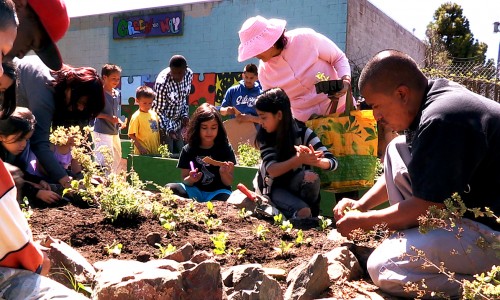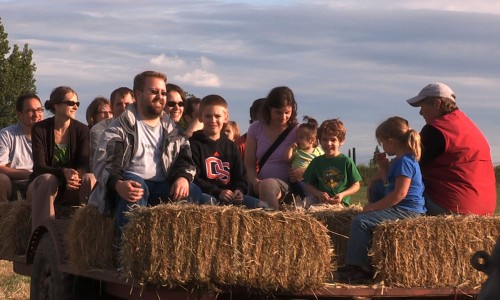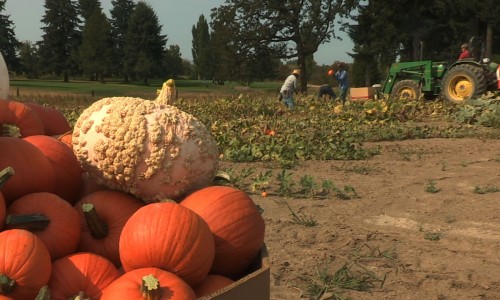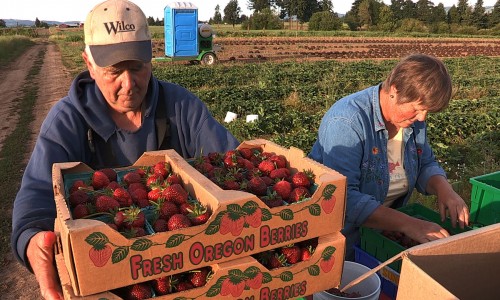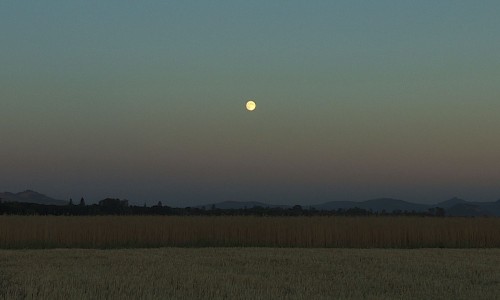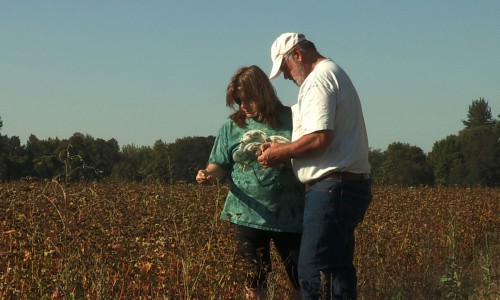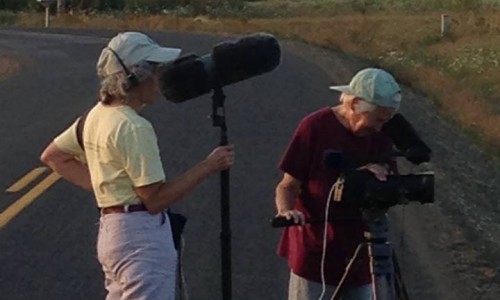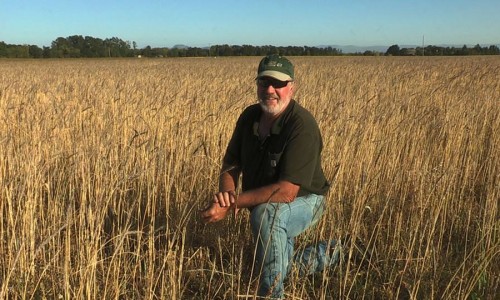GAINING GROUND
A Documentary by Elaine Velazquez & Barbara Bernstein
Watch the Trailer
GAINING GROUND is a documentary about growing food as a vehicle to empower communities and change lives. The film shows the connection between family farmers rejecting big ag and urban activists defying the control of big oil in their community.
GAINING GROUND interweaves three stories that demonstrate what compels people to make ethical choices that serve their communities and better the planet.
♦ Activists living in the shadow of the Chevron Refinery in Richmond, California, struggle to transform corners of Richmond, California’s inner city food desert into vibrant community gardens and opportunities for growth
♦ A family on the verge of losing their dairy farm in rural Oregon, finds a new direction growing produce for their local community
♦ The determined wife of the largest grass seed farmer in the Willamette Valley, convinces her husband to grow organic grains.
GAINING GROUND explores the devastating effects of the 2012 Chevron Richmond refinery fire on an urban farm in Richmond and the impacts of the discovery of GMO wheat in Eastern Oregon on the farmers in Oregon. While the film is sober about the obstacles to creating change, it points the way toward hope.
Please support the distribution of GAINING GROUND by clicking on the donate button above to help us get this film out as widely as possible. All donations are tax deductible.
GAINING GROUND is now available on DVD for individual and academic use.
“While there are many documentaries about farmers struggling against all odds to grow sustainable GMO-free, pesticide-free produce and grains for their own communities, few truly show the sweep of organic farming in various rural and urban situations, or make a case for sustainable farming as a class/racial/educational issue with transformative potential. Showcasing the experiences of Richmond, CA’s Urban Tilth farm (created by activists who were sick of the diabetes-baiting poor food options in their neighborhood), interwoven with scenes from a one-time dairy farm outside Portland, OR, and a grass seed farm in Oregon, filmmakers Elaine Velazquez and Barbara Bernstein’s Gaining Ground looks at common problems, ranging from a lack of knowledge about how to grow organic food, to the outrageous issue of GMO seeds used in industrial farming contaminating neighboring organic farms (which not only harms organic farmers, but they can find themselves sued by seed companies for royalties), to the specter of environmental catastrophe, such as the 2012 Chevron Richmond refinery fire that chemically altered Urban Tilth crops. In addition, organic farmers face a variety of social justice issues related to the simple but apparently commercially threatening impulse to feed humans nutritious food. A powerful documentary on a timely topic, this is highly recommended.”
Video Librarian
“Gaining Ground is a warm and wonderful film that journeys into the future of food and agriculture. We meet the young people who power the Richmond, California, urban agriculture project Urban Tilth. And we visit Oregon farmers who only reluctantly embraced organic agriculture, farmers markets, and community-supported agriculture (CSA) projects. Late in the film, we see how precarious alternatives can be: The Urban Tilth gardens are invaded by a toxic cloud from a fire at the nearby Chevron refinery and farmers in Oregon battle Monsanto’s GMO pollution. One of the biggest silences in the school curriculum is the growing struggle over food and agriculture. This is the kind of media we need as we help students—and ourselves—imagine local, organic food systems and a future free of fossil fuels. Hopeful, critical and poetic, Gaining Ground is rich with teaching possibilities — from middle school through university.”
Bill Bigelow, Curriculum Editor, Rethinking Schools
“Offering rich and authentic insights into the challenges, opportunities, and journeys of farmers and community activists growing food as a vehicle for creating social change, the film offers an in-depth examination of important issues. I recommend this excellent teaching tool for anthropology, ethnic studies, small farms, and food justice programs in high school through graduate level university courses.”
Eric T. Jones, Ph.D. Visiting Assistant Professor – Anthropology, Oregon State University
“I loved this film – how it rooted big issues within the narratives of such compelling individual personalities.”
David Naimon, host of Healthwatch and Between the Covers, KBOO-FM
